|
A century ago, up to 12 million of the world's heaviest land mammals roamed the earth. Today, there are only about 500,000 elephants left. Despite a 1990 ban on international trade in ivory, and even if the demand for animal tusks has decreased over the last few years, these majestic animals are alarmingly close to extinction. In October 2019, our ‘HER Planet Earth’ all-female team, had the great privilege of trekking 100km with Samburu warriors in the Karisia Hills of Northern Kenya. The Samburu are nomadic pastoralists who have lived harmoniously with nature in this region of Kenya for centuries. Following patterns of rainfall in search of fresh pasture and water for their cattle, camels, goats and sheep, they have developed a special relationship with the environment and this has created a biocultural landscape that promotes both Samburu culture and biodiversity. During our week-long sojourn in this remote part of Kenya, we witnessed incredibly stunning landscapes and ever-changing sceneries, from dry deserts and rocky volcanic terrain, to lush green forests and meadows as we climbed higher in altitude to 2,550 metres above sea level. Travelling with a full safari train, made up of twenty-eight transport camels loaded with our tents and supplies, our team walked side by side with an armed Samburu escort composed of proud local warriors, trackers and rangers. Each day we covered about 18 to 20 kilometres on foot, leaving camp just as dawn broke, and arriving at our next campsite by early afternoon. Our Samburu guides kept us safe throughout, scanning the path ahead meticulously, constantly on the lookout for signs of wildlife or other visitors. They were attentive to every detail and looked after us with sincere and generous hospitality, which made all the difference. The objective of our trek was to increase awareness of the impact of climate change in this region and raise valuable funds for Conservation International and their programmes aimed at building the resiliency of the local people of Northern Kenya, and women in particular, who are the hardest hit by climate change. In Kenya, women are the natural custodians of the environment and the first to be affected by environmental degradation. This is because they are the ones who walk for hours looking for water, who fetch firewood and who provide food for their families. Our support, which culminated in a team total of S$145,000, was aimed at creating more livelihood opportunities for women in this area - focused on wildlife conservation. Elephants and Samburu Culture As we journeyed with the Samburu through their territory, we learnt a great deal about their love of nature and their deep respect for elephants especially. These beautiful mammals have influenced Samburu tribal culture since the dawn of time. Elephants create paths to water and break branches that can be used for firewood, two functions that benefit the Samburu people’s survival. As we soaked up the beauty of the region during our long days of walking, we came to hear about a local legend that tells the tale of elephants who once lived in homes and worked with the Samburu women, demonstrating that elephants are ancient relatives and therefore deserve love and respect. The Impact of Climate Change We soon also realised however, that the Samburu way of life is being severely threatened by the impact of climate change. Droughts are leading to conflicts, human and livestock displacement, animal diseases, and food insecurity. These nomadic herders frequently have to dig deep holes to find water for both themselves and their livestock. They call them ‘Singing Wells’ because they sing to their livestock as they dig, and the cows recognise their family’s song and come down to their well to drink. The difference between each family's song is usually clear but can be very subtle. At night, thirsty elephants seek out these wells. The adults, with great long trunks, have little problem reaching for the water, but the younger, inexperienced elephants can tumble in. If the animals can't be pulled out, the elephants are forced to abandon their young. Over twenty of these abandoned elephants now live at the nearby Reteti Elephant Sanctuary, the first community owned elephant reserve in Kenya. At Reteti, the baby elephants are being devotedly taken care of and bottle fed, until they are big enough and old enough to be re-introduced into the wild. It's a unique form of conservation, where the local Samburu people collectively own and manage the 3,400-acre property. As the largest of all land mammals, African elephants play an important role in balancing natural ecosystems and part of our team’s fundraising went to support this elephant sanctuary to help them grow and develop the programme, so as to employ more local women to care for these beautiful creatures. Female Empowerment & Eco-Livelihoods Additionally, our team’s efforts were focused on giving a voice and providing a platform for the development of sustainable enterprises and family livelihoods. The ripple effect will extend to education, health, family income and even security, peace and stability. Gender imbalance is a major factor obstructing sustainable development in Africa and poverty is a key element undermining a girl’s right to education; a cycle that reinforces a large gender gap. Many aspects combine to truncate a girl’s education and a young women’s career, limiting the full realisation of her productive capacities. On the other hand, educating a girl means that as a woman, she is then empowered and more likely to participate in development efforts and in political and economic decision-making. One of our beneficiaries is a Conservation International Fellow, Rufo Halakhe, whom we met during our visit. Rufo will use her fellowship to explore how women are affected by tribal clashes involving communities in her region and how women can be champions of peace through their existing cultural structures. Another very special lady we met during our trip is Josephine Ikuru, a community leader and the first female peace coordinator for the Northern Rangeland Trust, a partner of Conservation International. She’s been a champion for women’s rights in Northern Kenya since her teen years, defying gender norms to attend local meetings traditionally dominated by men. Josephine gained a passion for conservation through her efforts to reform poachers, working to end both the devastation of her beloved wildlife and the poverty that has given rise to it. By age 22, she was elected the Chairperson of the Nakuprat-Gotu Conservancy, bringing together rival tribes to curb poaching and conserve the native wildlife. Throughout her career, Josephine has successfully reformed dozens of poachers, helping convert several of them into conservationists and peace ambassadors. Anti-poaching Initiatives Our team spent a day with the Northern Rangelands Trust to better understand how our funds could help further develop their mobile anti-poaching unit. This group is comprised of highly trained men and women from the Kenyan National Police Reservists, who are tasked to protect the whole area. The rangers are extremely skilled in several disciplines, including physical training, first aid, weapons handling, navigation, legal briefing, and also work with a K9 task force, making them a unique influence for stability and safety in the community. Their efforts since their inception have contributed significantly to a reduction in the illegal killing of several endangered species in this part of Kenya. The local elephant population has bounced back as a result, from an all-time low, since the introduction of this team. The success and continuation of this ranger unit provides an example to other communities of what can be achieved with the right resources and training. Overall, our time in Kenya was a truly enriching and insightful experience. This magnificent country of epic landforms stirred in us deep longing for the rest of the African continent. And when you depart, as the plane lifts, you feel that more than leaving a continent, you are leaving a state of mind. Our hearts are full from the staggering beauty of the local people whom we came to know during our journey. They brought soul and colour to the earth. We will never forget the vast multicoloured grasslands peppered with immense herds of wildlife, which we traversed. As with many of our expeditions, it’s not so much about the destination but more about the journey itself. The conservation mission is difficult and urgent, and the odds are seemingly stacked against us. The path is rocky, steep, hard and dusty. At times we feel overwhelmed, it’s difficult to take just one more step forward, but then we see our teammates, who are just as thirsty and tired as us, and we know that we are not alone in this journey. Together, we lift each other up and it inspires us to keep going, because this pursuit is too important. We must never give up. 9/16/2019 over S$130,000 RAISED for Wildlife Conservation & FEMALE Empowerment in North KenyaRead Now Singapore, 16 September 2019 – The Africa Society of Singapore and HER Planet Earth have joined forces to raise awareness and funds for projects supporting wildlife conservation and female empowerment in North Kenya. Via a sparkling 200-person private ball at the Grand Hyatt Hotel in Singapore on 14 September 2019 - which featured the work of celebrated Photographer David Yarrow - and an all-female expedition to North Kenya, due to kick off this October, the partnership has raised over S$130,000 to date, for Conservation International, a charity that works to protect nature for the benefit of humanity. On 1 October 2019, the self-funded HER Planet Earth team of 16 women from around the world will embark on a pioneering expedition to trek 100km across Northern Kenya's Karisia Hills. The trail has never been attempted before, and will take the team and its safari camel train on a new passage across the mountains. Guided by expert tracker Kerry Glen and accompanied by Samburu or Laikipia Maasai guides, the women will be hikking along tough but varied terrain, including sandy river beds, ancient elephant tracks, old growth forest, plains and hilly peaks. The expedition will range at altitudes from 3,500ft to 6,000ft (or 1,000 to 2,000 metres) and in daily temperatures that could fluctuate between 10 to 30 degrees Centigrade. The women will be up early, before sunrise, walking 5-6 hours every day to reach the next camp and can expect to see big game on the walking safari. The totality of the funds raised by this campaign will go to support a range of projects run by Conservation International in North Kenya, focused on gender equality. These may include the Reteti Elephant Sanctuary - the first community owned and mainly female operated elephant sanctuary in Kenya - the expansion of eco-tourism facilities and the establishment and support of a mobile anti-poaching team for the region. Michael O’Brien-Onyeka, Senior Vice President of Conservation International’s Africa Field Division said, “Conservation International is excited by this remarkable expedition put together by our partner ‘HER Planet Earth’ . It provides a unique opportunity for an adventurous group of women from across the world to connect directly with the rich but threatened mosaic of wildlife, landscape and people in remote Northern Kenya, while supporting a model of community-led conservation that delivers tangible and sustainable benefits including peace and security, enhanced incomes and women empowerment and resilience.” He added: “ We are truly honoured that the communities and women that we work with across Northern Kenya will benefit significantly from the awareness and funds that this exceptional expedition will provide.” Now in its third year of operation, Singapore-based NGO HER Planet Earth, aims to empower women as a way to mitigate climate change. By working with their charity partners to promote gender equality and build more eco-friendly livelihoods around the world, the organisation hopes to help women become more climate change resilient, while making environmental conservation a priority. Over the last few years, HER Planet Earth's expeditions have taken all-female teams sailing to remote islands in the Philippines, climbing in Antarctica, exploring the largest caves in the world in Vietnam, and trekking across glaciers and volcanos in Iceland - all in an effort to raise awareness and funds for these key initiatives. “It is vital that we empower more women to play a central role in decision-making at all levels of society. Only then will environmental sustainability become a true reality,” said HER Planet Earth Founder & CEO, Christine Amour-Levar, who wants to see ‘gender’ at the heart of climate action. Find out more:
About the Africa Society: The Africa Society was founded in 1963 and has for mission to bring members together to celebrate African culture and friendships and African causes. About HER Planet Earth: HER Planet Earth is a global advocacy movement that promotes a deeper connection between women empowerment and the integrity of the environment. The non-profit organisation, which is headquartered in Singapore, aims to inspire more people to become policymakers and agents of change in order to achieve social and economic equity and a healthy and thriving planet. HER Planet Earth organises pioneering and self-funded expeditions around the world to increase awareness of environmental degradation and raise funds for programmes that empower and educate underprivileged women affected by climate change - ultimately helping them build climate change resilience. About Conservation International: For over 30 years Conservation International has worked to protect Nature with cutting-edge science, innovative policy and global reach. Conservation International seeks to break the cycle of the destruction of Africa’s natural capital by contributing to a new development paradigm where growth embraces, not erodes, nature, and where nature is valued, protected and managed for the benefit of human wellbeing. Visit www.conservation.org for more information or contact the Asia Pacific office to find out how you can help Conservation International’s work in the region. Team Profiles: The team of this HER Planet Earth Kenya 2019 Expedition is formed by 16 intrepid women of diverse nationalities and backgrounds. While they are all incredibly well accomplished in their careers, they are equally passionate about protecting the environment and empowering underprivileged women. To read the team bios please click here. Community Conservation and Gender Imbalance: This model of community conservation has changed local attitudes toward wildlife and the team’s journey will take them deep into the very landscapes and communities where CI’s work is done. All funds raised will be used to benefit these local people; to give them a voice and provide a platform for their development of sustainable enterprises and family livelihoods. The ripple effect will extend to education, health, family income and even security, peace and stability. Gender imbalance is a major factor obstructing sustainable development in Africa and poverty is a key factor undermining a girl’s right to education; a cycle that reinforces a large gender gap. Many factors combine to truncate a girl’s education and a young women’s career, limiting the full realisation of her productive capacities. On the other hand, educating a girl means that as a woman, she is then empowered and more likely to participate in development efforts and in political and economic decision-making. Over 50% of the practitioners in the existing production sectors where CI’s Africa programme works are women. They are often marginalised and lack the skills and education to be true agents of change or to be able to influence policy in their favour. Research by the World Bank, UNICEF shows that better educated women have fewer children (the difference between 0 years of schooling and 12 years is almost 4 to 5 children per woman). Further research shows that every additional year of schooling for a girl increases her future earnings by 10 to 20% and that each additional year of schooling for children increases the average annual National GDP by 0.37%. The advantages of girl’s empowerment, therefore, do not stop at the boundaries of a single child, but extend through families, communities, and entire nations. Wildlife Trafficking: The dramatic rise of wildlife trafficking, which has become an annual US$10bn illicit enterprise, now represents one of the world’s four most profitable criminal activities. Wildlife trade follows similar routes and is linked to the same terrorist organizations and organised criminal syndicates that are behind the illegal trade trafficked human beings (as well as drugs and weapons). Community conservation seeks to tackle insecurity holistically by focusing on strengthening community ties and encouraging non-violent conflict resolution. Conservancy rangers gain employment and bring increased security which allows others to benefit from the development of other skills, alternative livelihoods and a connection to new markets. To donate to the mission please visit the team’s fundraising page here. To see pictures of the team’s journey, ‘LIKE’ their Facebook page, follow them on Twitter and Instagram: https://www.facebook.com/herplanetearth/ https://www.instagram.com/herplanetearth/ https://twitter.com/herplanet_earth 5/30/2019 ‘HER Planet Earth’ Team Embarks on Unchartered Terrain Across Northern Kenya’s ‘Biological Bonanza’ for Conservation InternationalRead Now (Singapore, 28th May 2019) On 1 October 2019, a self-funded team of 16 women from around the world will embark on a pioneering expedition to trek 100km across Northern Kenya’s remote Matthews range. The trail has never been attempted before and will take the group and its safari camel train on a new passage across the mountains. The team, coming together under the banner of ‘HER Planet Earth’ - a non-profit organisation headquartered in Singapore dedicated to gender equality and environmental conservation – aims to raise a combined total of $150,000 USD for Conservation International (CI), a charity that works to protect nature for the benefit of humanity. HER Planet Earth, now in its third year of operation, raises awareness and funds via challenging expeditions across the globe. Pioneering in nature, they support organisations that champion underprivileged women affected by climate change to help empower and advance their life and community. Recent HER Planet Earth expeditions have taken all-female teams to remote islands in the Philippines, Mountains in Antarctica and to the largest caves in the world in Vietnam. Guided by expert tracker Kerry Glen and accompanied by Samburu or Laikipia Maasai guides, the women will be trekking along tough but varied terrain, including sandy river beds, ancient elephant tracks, old growth forest, plains and hilly peaks. The expedition will range at altitudes from 3,500ft to 5,000ft (or 1,000 to 1,600 metres) and in daily temperatures that could fluctuate between 10 to 30 degrees Centigrade. The team will be up early, before sunrise, walking 5-6 hours every day to reach the next camp and can expect to see big game on the walking safari. The Matthews Range in North Kenya The Matthews Range, also known as the Lenkiyio Hills, rises up out of the semi-desert, a chain of peaks covered in dense dewy forest. Dubbed a ‘biological bonanza’ by the BBC, this mountain forest is a stronghold for a wide range of species including the melanistic leopard (also known as the black panther), elephant, Colobus monkey, greater kudu, waterbuck and giant forest hogs. More than 200 bird species have been counted in the area along with more than 150 species of butterflies. During the expedition, HER Planet Earth will meet the fascinating Samburu people, semi-nomadic pastoralists who are cousins to the Maasai. With the continent challenged by economic and political under-development, Northern Kenya is a great model for community-driven co-management of shared natural resources set in the most ancient landscape of human and animal co-habitation on the planet. The funds raised will go to support a range of projects focusing on gender equality including the Reteti Elephant Sanctuary - the first community owned and mainly female operated elephant sanctuary in Kenya, the expansion of eco-tourism facilities and the establishment and support of a mobile anti-poaching team for the region. The group will also work with grantees in Microsoft’s AI for Earth program, including Vulcan Earth Ranger, in collecting information on activities, animals and assets in protected areas to help conservationists. Wildlife that is traded legally through the pet and collector market is a growing multi-billion-dollar industry, yet it currently lacks the proper technologies and tools needed, opening the way for increased illegal wildlife trade, and in many ways the source of why animals need to be protected in the first place. Conservation International is expanding on the work being done to monitor animals on the ground by developing and implementing a wildlife enforcement and regulatory application that will provide customs agents new technology-based solutions designed to ensure only legally traded pet species are flowing through border points. Conservation International will continue to partner with organizations such as Microsoft to address the holistic conservation issues being faced. Michael O’Brien-Onyeka, Senior Vice President of Conservation International’s Africa Field Division said: “CI is excited by this remarkable expedition put together by our partner ‘HER Planet Earth’ . It provides a unique opportunity for an adventurous group of women from across the world to connect directly with the rich but threatened mosaic of wildlife, landscape and people in remote Northern Kenya, while supporting a model of community-led conservation that delivers tangible and sustainable benefits including peace and security, enhanced incomes and women empowerment and resilience.” He added: “ We are truly honoured that the communities and women that we work with across Northern Kenya will benefit significantly from the awareness and funds that this exceptional expedition will provide.” “While climate change is a global phenomenon, its impact is not spread across a level playing field. Its effects are felt locally, and poor people suffer the most. Among the world’s 1.3 billion people living in poverty, the majority are women. It is vital we empower more women to play a central role in decision-making at all levels of society. Only then will environmental sustainability become a true reality,” said HER Planet Earth Founder & CEO, Christine Amour-Levar, who wants to see ‘gender’ at the heart of climate action. Neal Chandaria, Honorary Consul of the Republic of Kenya in Singapore said, “we are very grateful for the effort of Her Planet Earth and their team of committed women who will be raising funds for community conservation in Northern Kenya later this year. It is always encouraging to work with such passionate individuals and we’re excited to see this remarkable trip coming together for the benefit of people and wildlife in our beautiful country, Kenya. For over 30 years Conservation International has worked to protect Nature and now, more than ever, it is crucial for us all to value and protect nature for the benefit of human wellbeing.” HER Planet Earth’s objective is to inspire people to leave their comfort zones, families and homes for a certain period of time, while pushing their limits in an effort to rally support for a worthy cause. At the core of the organisation’s culture is a commitment to empower underprivileged women, a passion for adventure and a deep respect and love of nature. HER Planet Earth seeks to take participants on pioneering, self-funded, expeditions around the world, so that they can make new discoveries, flourish as individuals, but most importantly, contribute to society. By travelling in such challenging conditions, the team hopes to bring international attention to the need for societies, governments and corporations to get involved and help support climate action and women empowerment. To donate to the mission please visit the team’s fundraising page here. Team Profiles The team of this HER Planet Earth Kenya 2019 Expedition is formed by 16 intrepid women of diverse nationalities and backgrounds. While they are all incredibly well accomplished in their careers, they are equally passionate about protecting the environment and empowering underprivileged women. To read the team bios please click here. NOTES TO EDITORS About HER Planet Earth HER Planet Earth is a global advocacy movement that promotes a deeper connection between women empowerment and the integrity of the environment. The non-profit organisation, which is headquartered in Singapore, aims to inspire more people to become policymakers and agents of change in order to achieve social and economic equity and a healthy and thriving planet. HER Planet Earth organises pioneering and self-funded expeditions around the world to increase awareness on environmental degradation and raise funds for programmes that empower and educate underprivileged women affected by climate change - ultimately helping them build climate change resilience. The organisation partners with nature lovers, environmentalists, scientists, polar explorers, adventurers, women’s rights advocates, corporates, tech entrepreneurs, feminists and NGOs that have programmes and structures in place dedicated to building a deeper connection between gender equality, genuinely sustainable development and the protection of the environment. www.HERplanetearth.com About Conservation International For over 30 years Conservation International has worked to protect Nature with cutting-edge science, innovative policy and global reach. Conservation International seeks to break the cycle of the destruction of Africa’s natural capital by contributing to a new development paradigm where growth embraces, not erodes, nature, and where nature is valued, protected and managed for the benefit of human wellbeing. www.conservation.org Community Conservation and Gender Imbalance This model of community conservation has changed local attitudes toward wildlife and the team’s journey will take them deep into the very landscapes and communities where CI’s work is done. All funds raised will be used to benefit these local people; to give them a voice and provide a platform for their development of sustainable enterprises and family livelihoods. The ripple effect will extend to education, health, family income and even security, peace and stability. Gender imbalance is a major factor obstructing sustainable development in Africa and poverty is a key factor undermining a girl’s right to education; a cycle that reinforces a large gender gap. Many factors combine to truncate a girl’s education and a young women’s career, limiting the full realisation of her productive capacities. On the other hand, educating a girl means that as a woman, she is then empowered and more likely to participate in development efforts and in political and economic decision-making. Over 50% of the practitioners in the existing production sectors where CI’s Africa programme works are women. They are often marginalised and lack the skills and education to be true agents of change or to be able to influence policy in their favour. Research by the World Bank, UNICEF shows that better educated women have fewer children (the difference between 0 years of schooling and 12 years is almost 4 to 5 children per woman). Further research shows that every additional year of schooling for a girl increases her future earnings by 10 to 20% and that each additional year of schooling for children increases the average annual National GDP by 0.37%. The advantages of girl’s empowerment, therefore, do not stop at the boundaries of a single child, but extend through families, communities, and entire nations. Wildlife Trafficking The dramatic rise of wildlife trafficking, which has become an annual US$10bn illicit enterprise, now represents one of the world’s four most profitable criminal activities. Wildlife trade follows similar routes and is linked to the same terrorist organizations and organised criminal syndicates that are behind the illegal trade trafficked human beings (as well as drugs and weapons). Community conservation seeks to tackle insecurity holistically by focusing on strengthening community ties and encouraging non-violent conflict resolution. Conservancy rangers gain employment and bring increased security which allows others to benefit from the development of other skills, alternative livelihoods and a connection to new markets. To donate to the mission please visit the team’s fundraising page here. To see pictures of the team’s journey, ‘LIKE’ their Facebook page, follow them on Twitter and Instagram: https://www.facebook.com/herplanetearth/ https://twitter.com/herplanet_earth https://www.instagram.com/herplanetearth/ PHOTO CREDITS: ©Ami Vitale, ©Georgina Goodwin. |
Details
AuthorChristine Amour-Levar Archives
December 2023
Categories
All
|
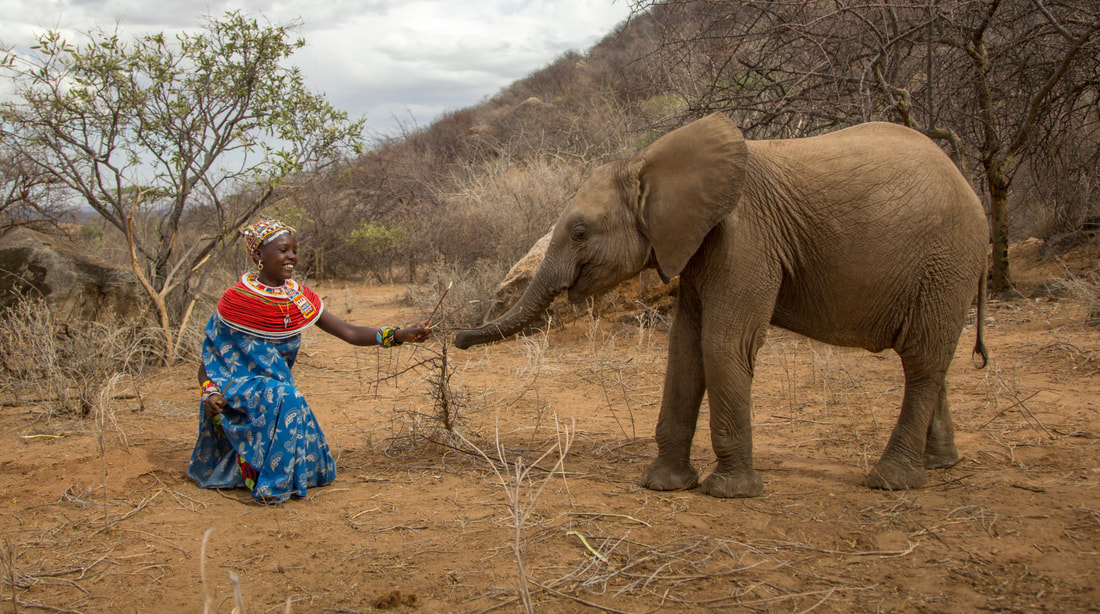
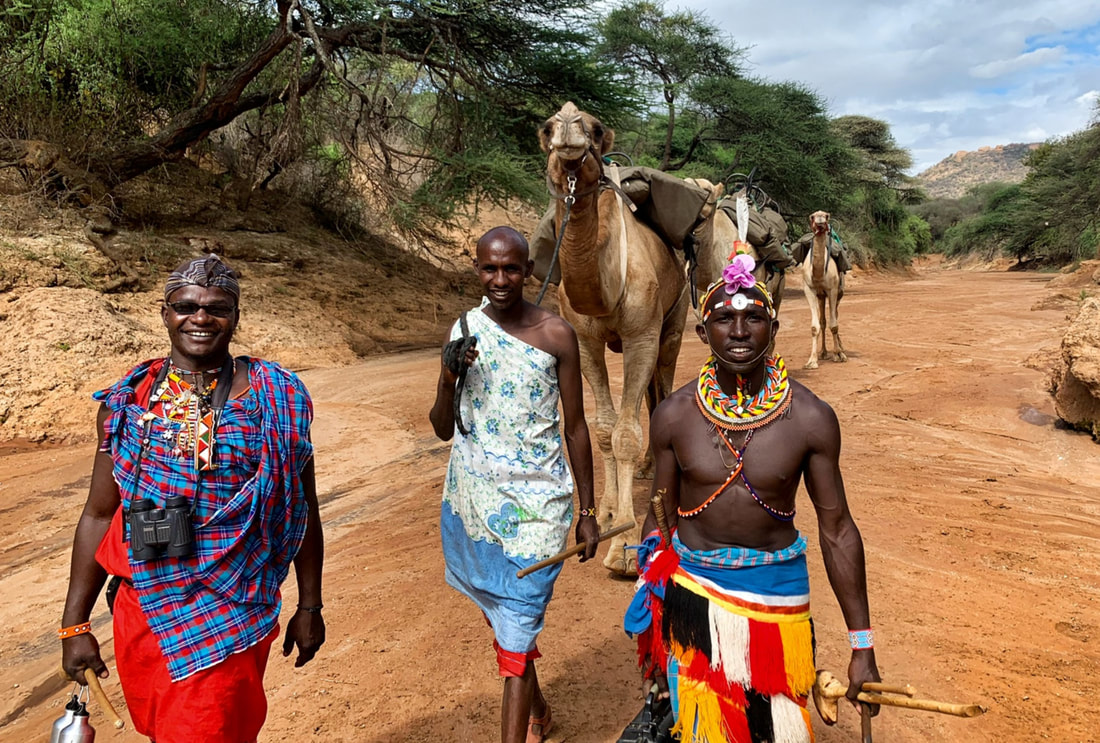
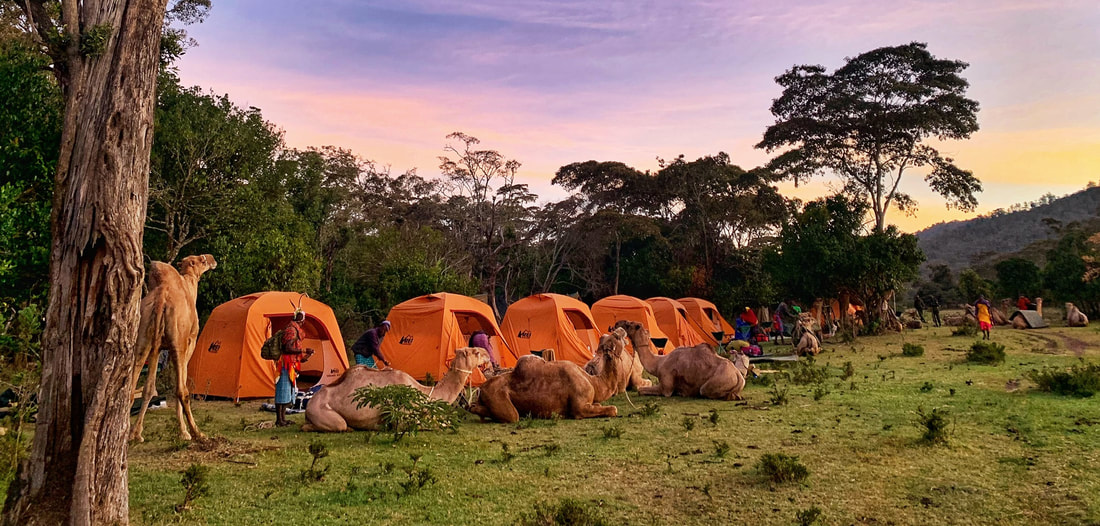
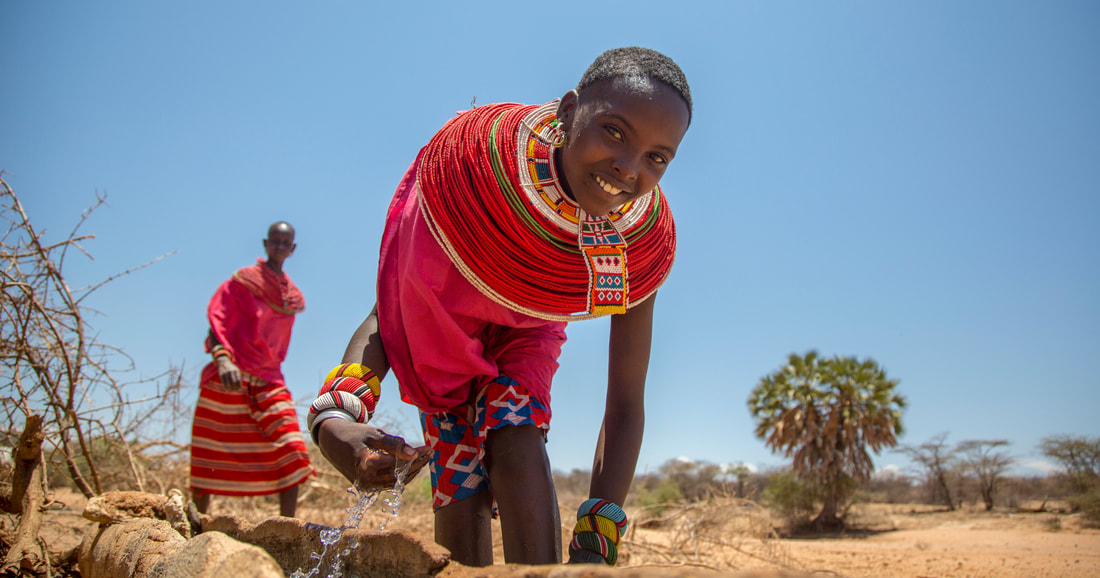
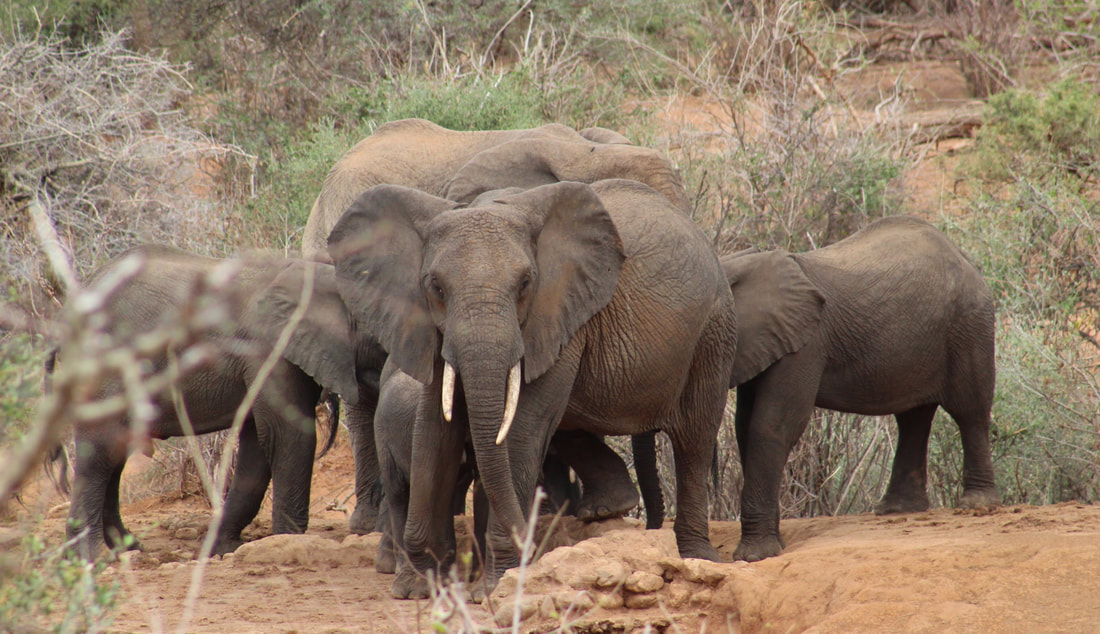
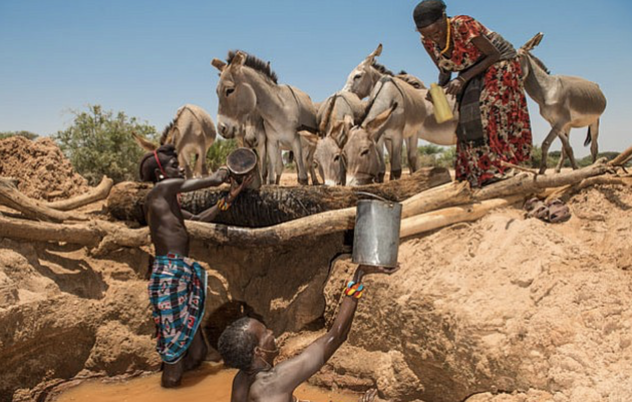
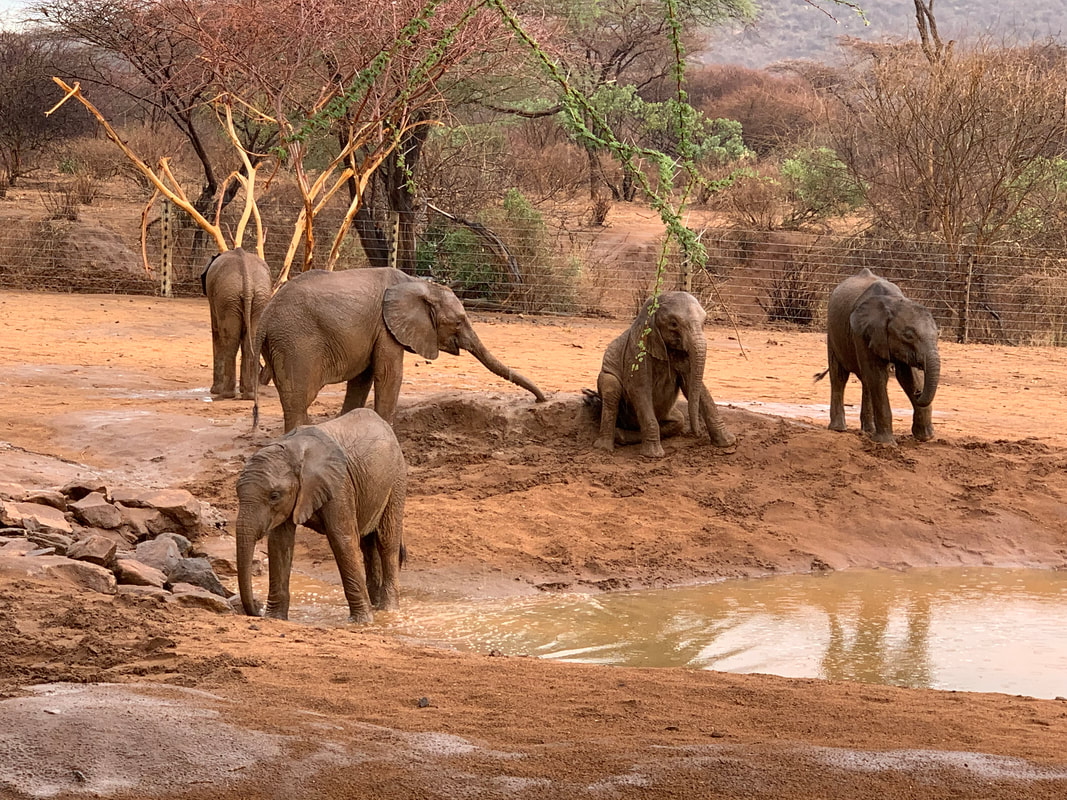
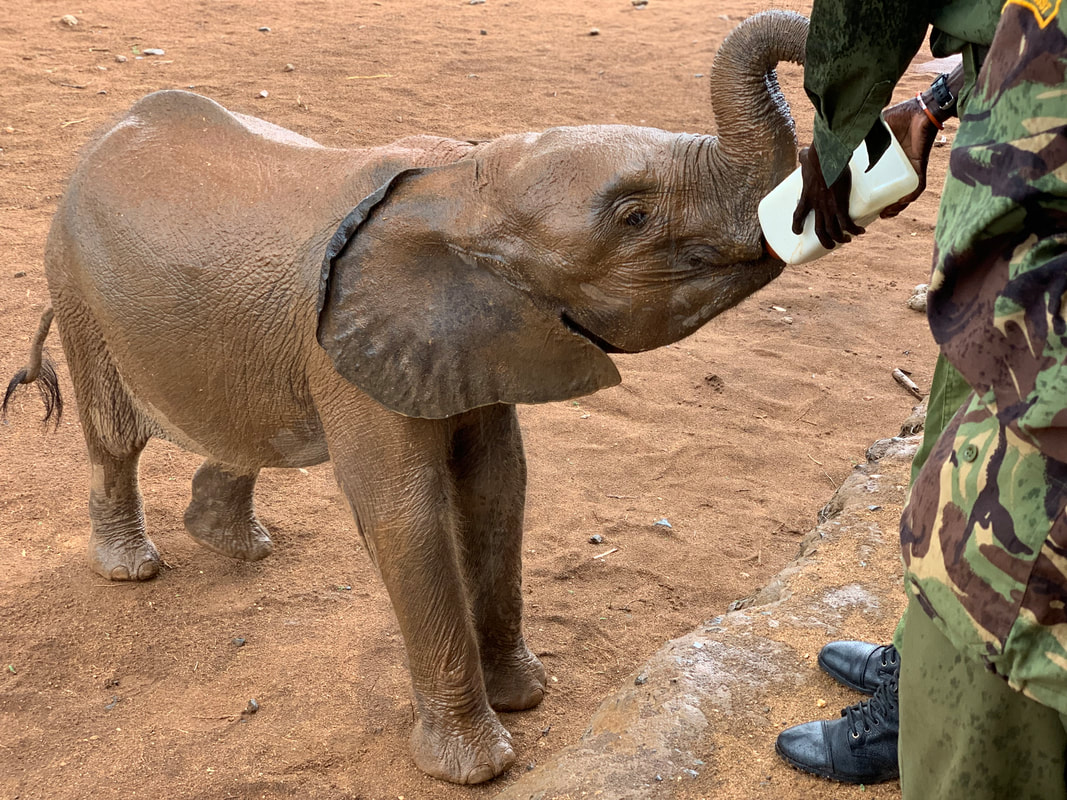
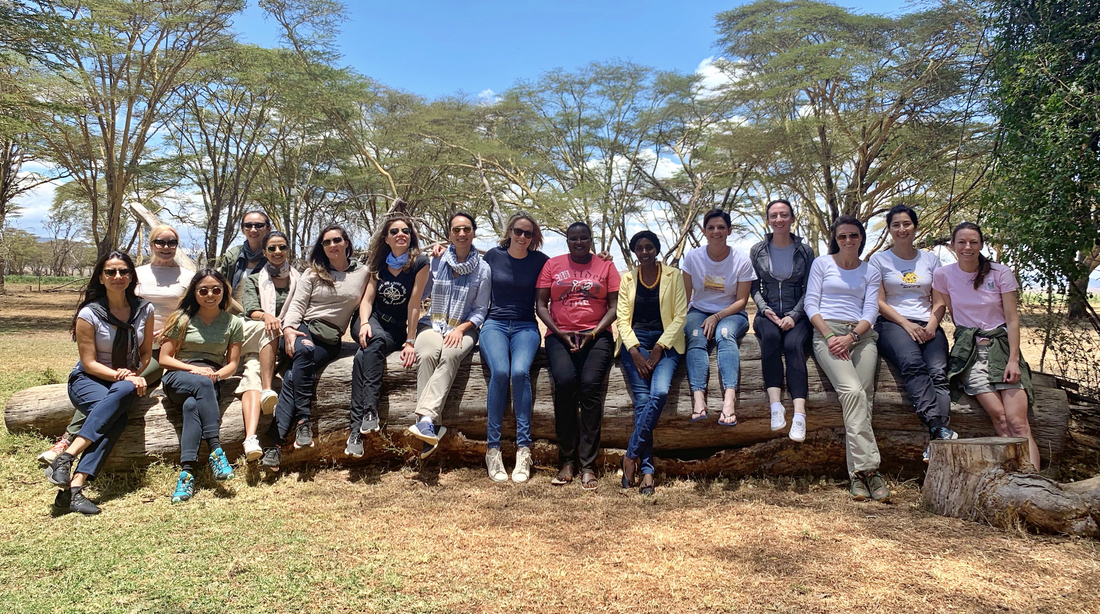
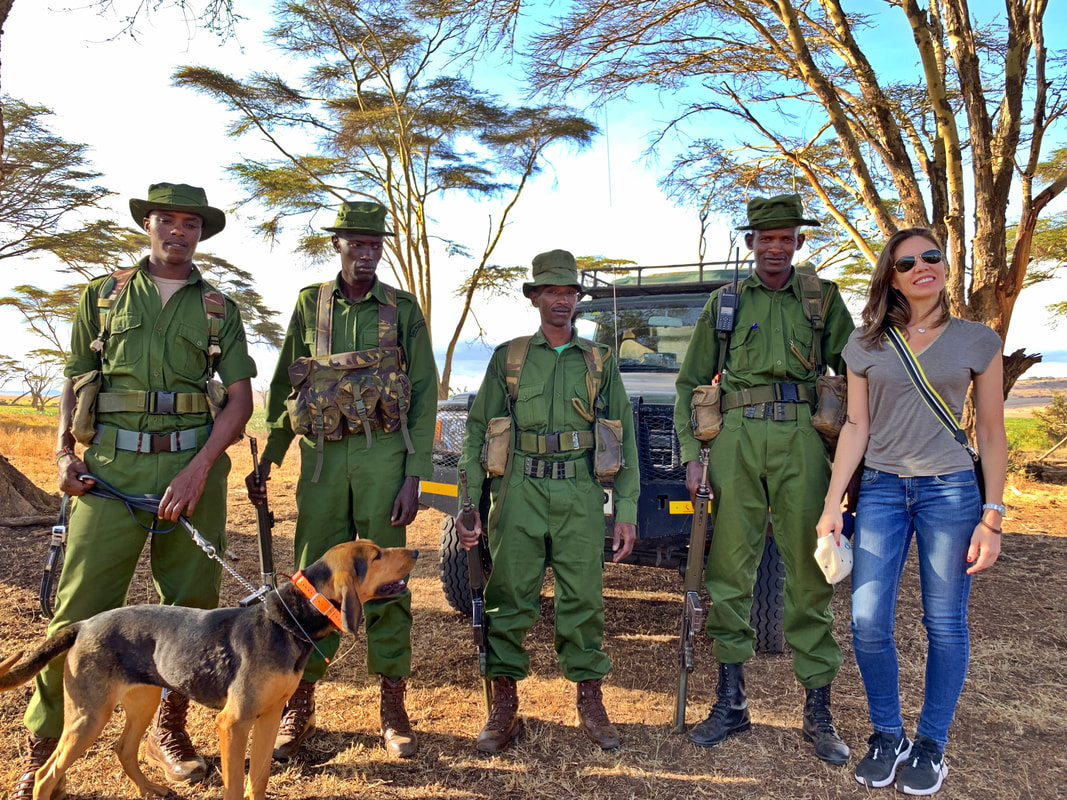
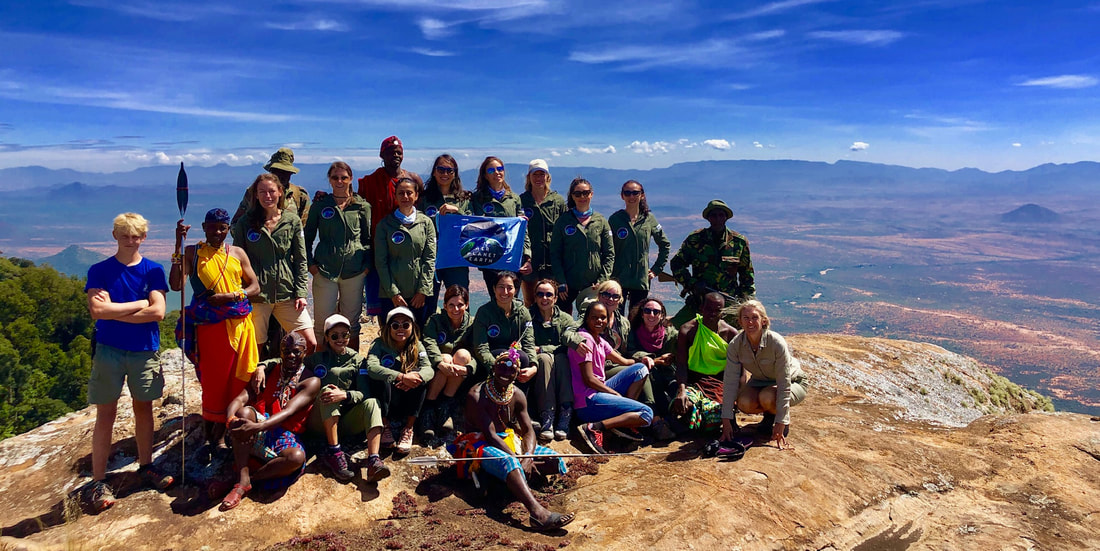
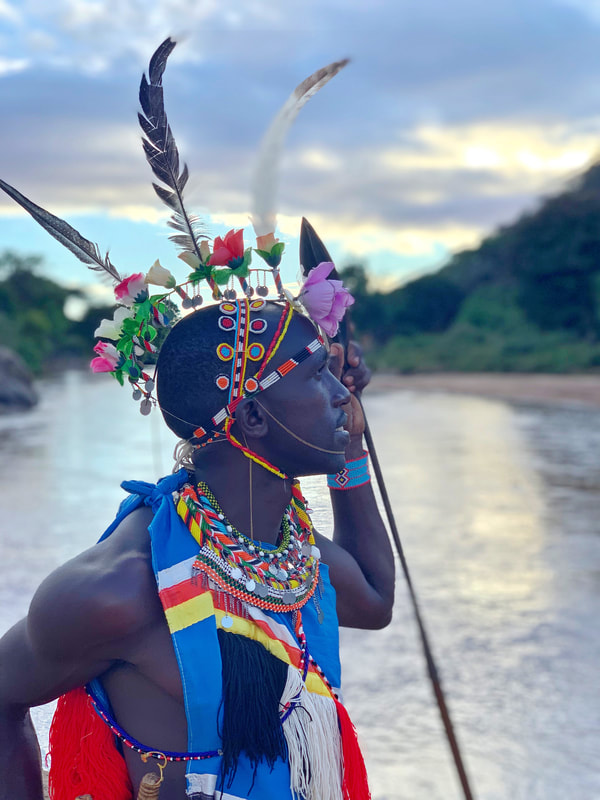
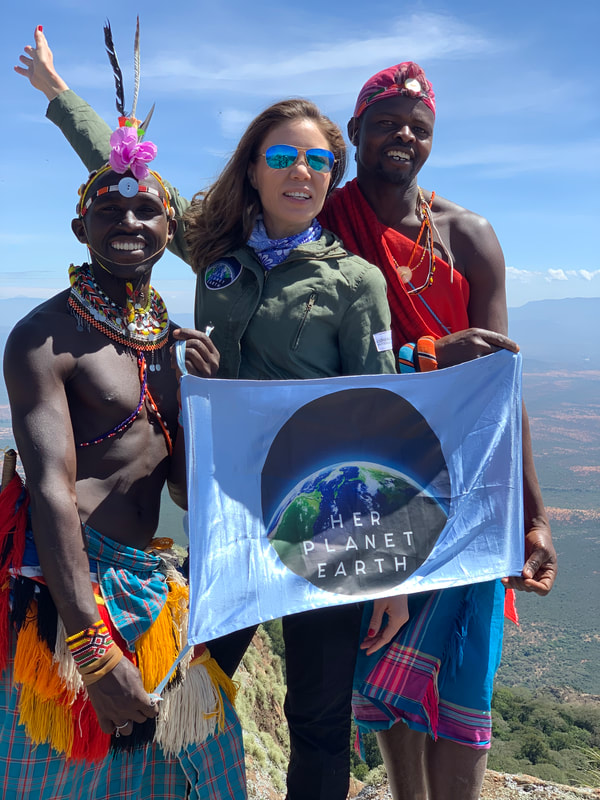

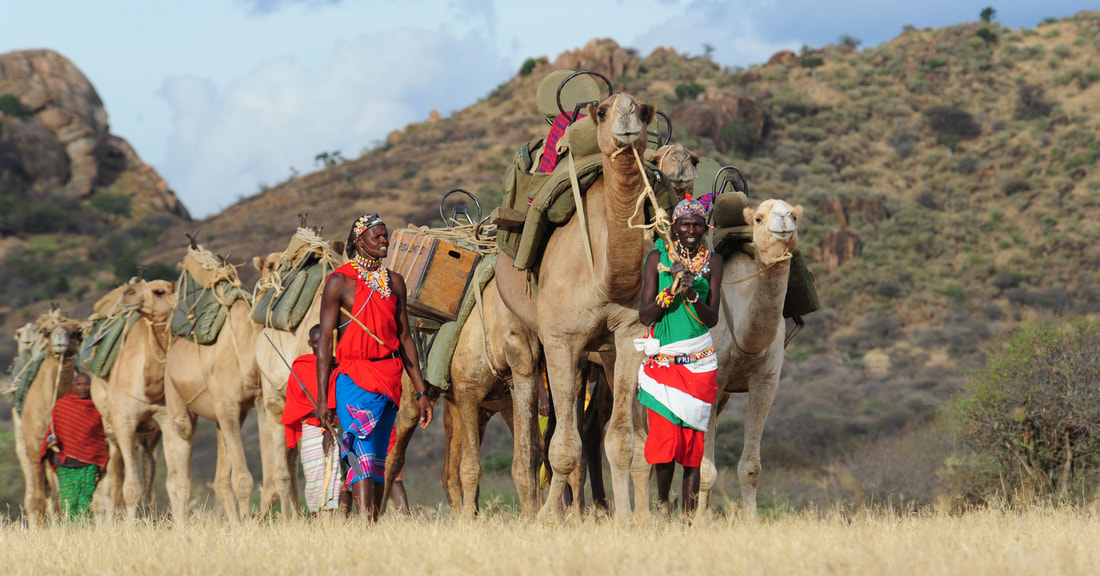
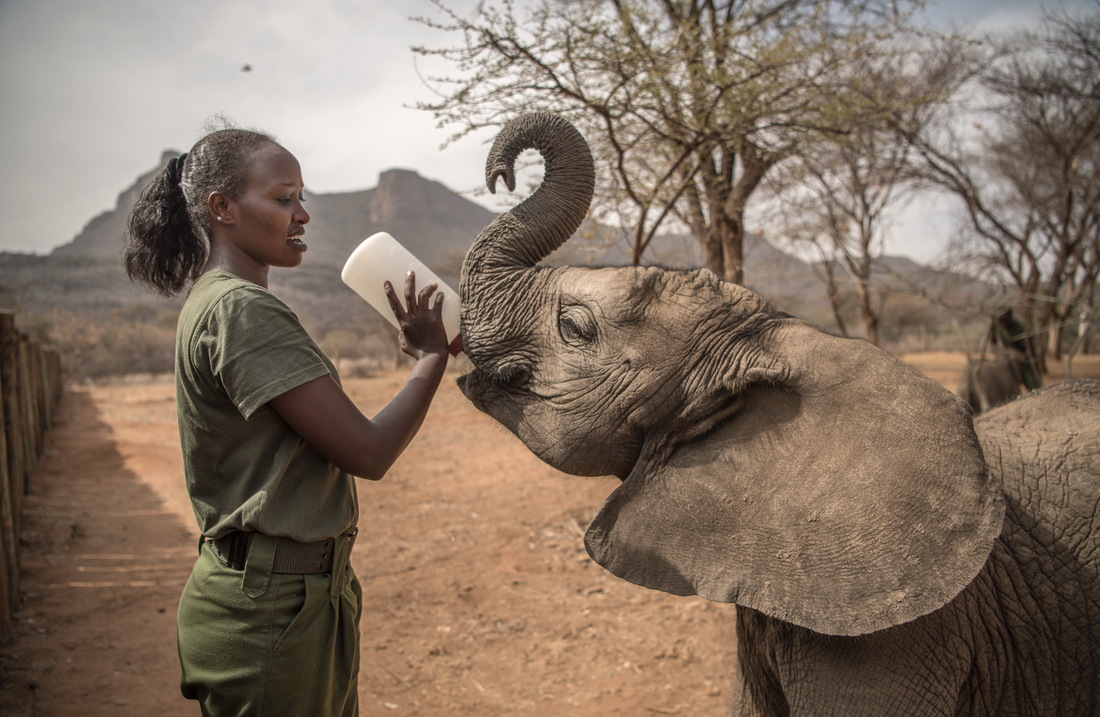
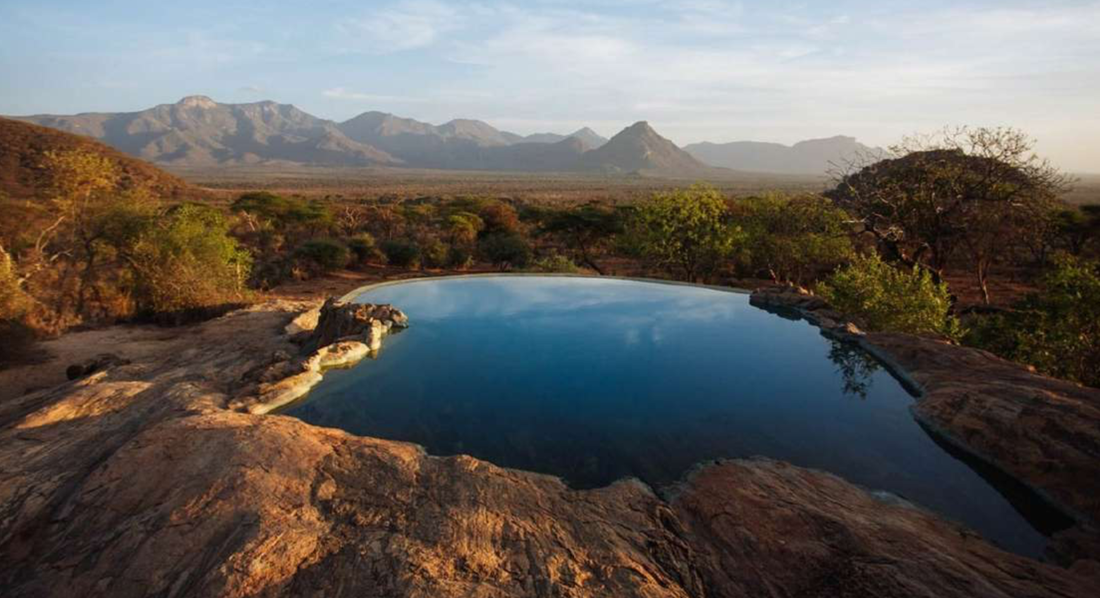
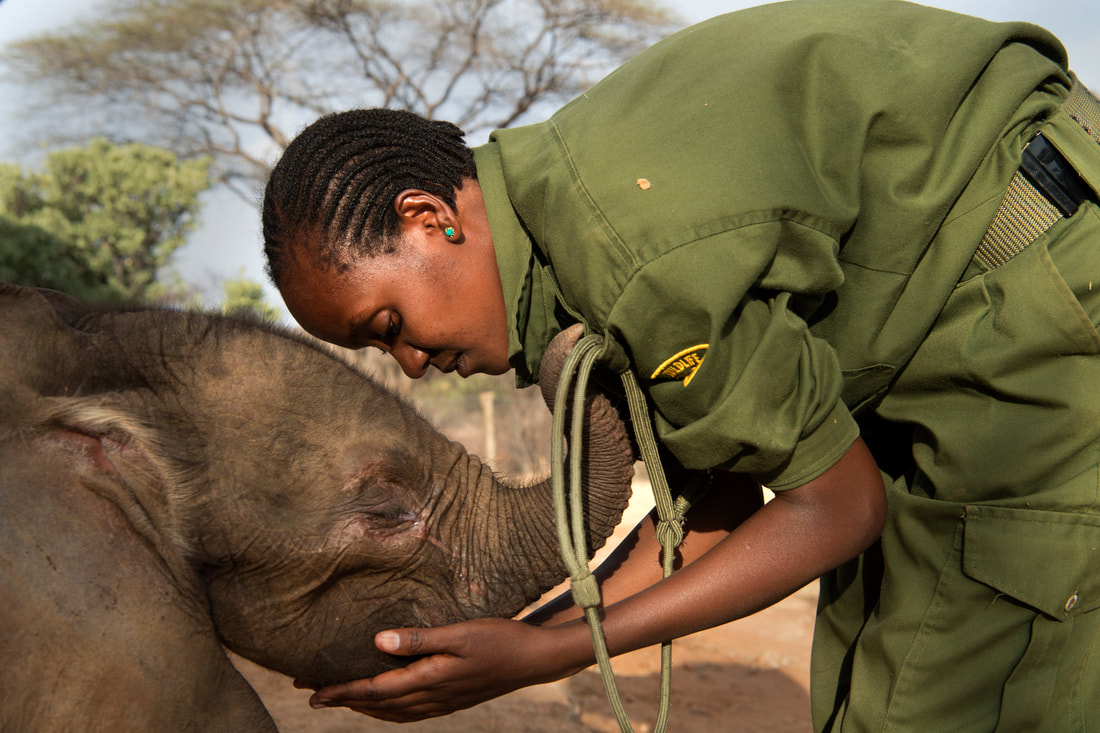
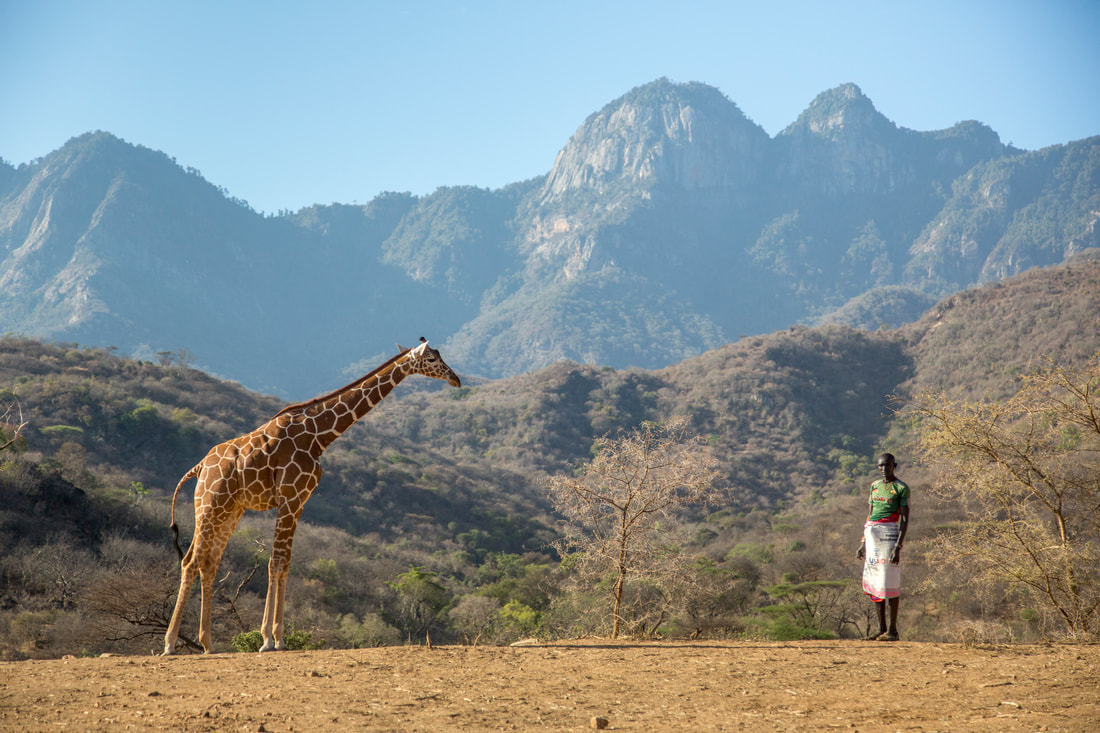
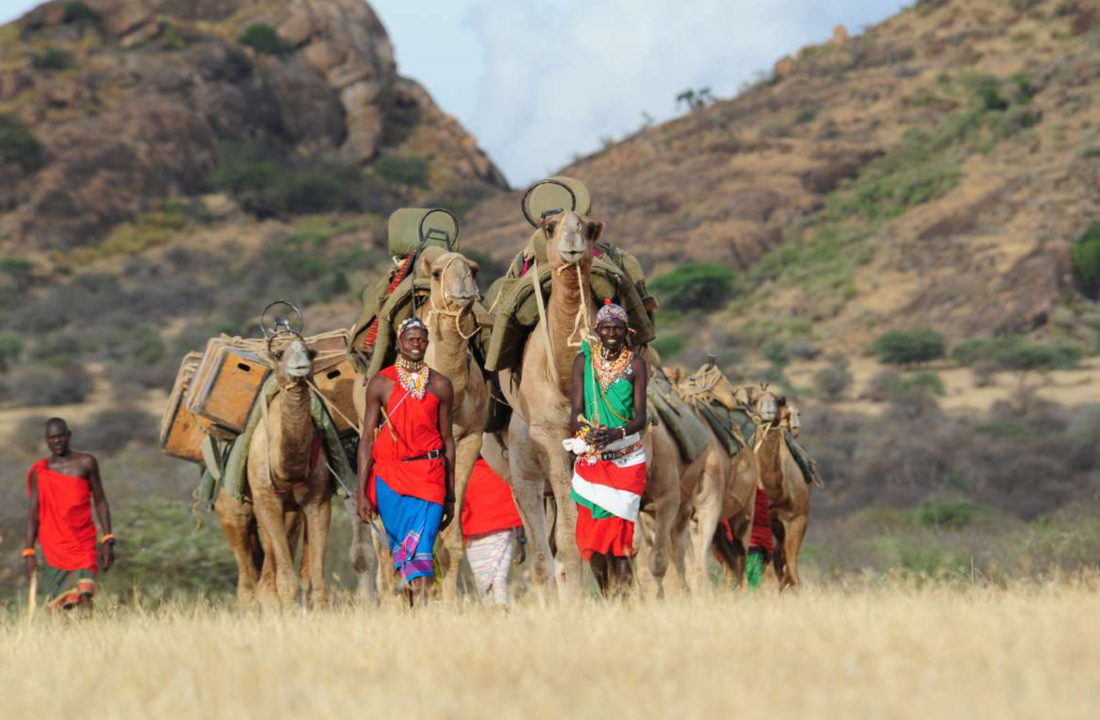
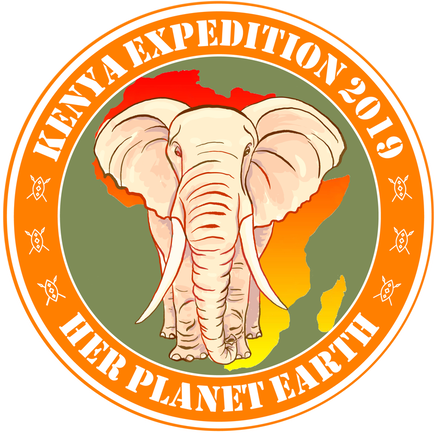
 RSS Feed
RSS Feed